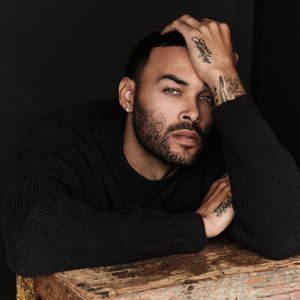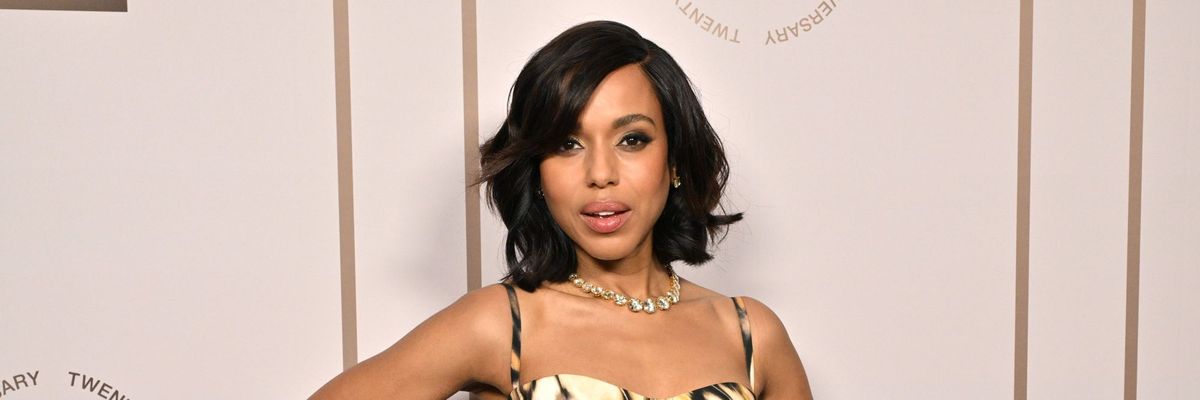
When you’re attending school to become a sex therapist or educator they have something called SAR, or Sexual Attitude Reassessment. The goal is to determine where you stand on atypical or sensitive scenarios that may walk into your office in the form of your client(s). By "atypical," I simply mean that it’s not your run-of-the-mill couples counseling session. One of the topics that came up – one that would’ve never crossed my mind – was bodily fluids. Prior to that, I never considered that people might be into a wide range of bodily fluids and I also didn’t realize the various ways that bodily fluids could be incorporated into sex.
Now, I’m sure you’re curious as to what a SAR may encompass. You usually are asked to preview the material at hand so yes, we absolutely would watch porn in our classroom as a means of exposure. The teacher provides a disclaimer and makes it clear that you can step out at any given time. Anyways, the 'bodily fluids' chapter came up, and there I was watching scat play (fecal matter), vomit, and blood to sum it up. Needless to say, or maybe not needless, blood was easily the most tolerable of the list as it wasn’t nearly as gross to watch TO ME.
I’m not here to kink shame or 'yuck someone else's yum,' as we might say in class. But instead, I am here to share the introspection I gained from my time in school – that not everything is for everyone and scat play kinksters were never going to be my people.
I say all of this to say, I now have a weird stillness when I hear about certain things – after all, my training has prepared me. Plus, I’ve always been interested in the occult which makes things such as blood play far less unsettling. I’ve even used menstrual blood to fertilize my plants! So, when Megan Fox and fiancé Machine Gun Kelly recently admitted that they drink one another’s blood, I was chillin'. "It's just a few drops," she told British GLAMOUR, "on occasion for ritual purposes only."
We tend to only think about blood play within the confines of sexual intimacy as period sex. However, there is a vampire kink in and of itself, and we all know how that ends. Not to say that the couple labels themselves as 'vampires' but to say that blood sharing is more common than you know.
That’s just one thing you need to know, but here are a few other things you may not have known about blood sharing.
Bound for Life
 Giphy
GiphyThe witchy community needs you to know that blood is a binding agent. That’s probably not exactly what they call it, but baked goods are on my mind apparently. Do you know that old saying about not eating just any woman’s spaghetti? Well, it’s not for nothing! (Editor's note: In some cultures, it is believed that by putting menstrual blood in someone's spaghetti, you can capture that person's heart.) Yes, the thought of unknowingly eating someone’s blood is definitely gross, but it’s a binding spell that creates extreme attachment and intimacy.
And though you may not be bound for life exactly, like any love spell, it is believed that such an act makes it extremely difficult to detach and can be risky to engage in. The witch community doesn’t even recommend having period sex with just any partner for this reason. The couple themselves have said that it is only done on occasion and for “ritual purposes only” with just a few droplets – so yeah, take heed.
Take Special Care
Generally speaking, it is highly encouraged that you conduct research when engaging in blood sharing. Furthermore, it’s not recommended that you go rogue and slash open one another! Vampire experts have commented on Megan Fox and Machine Gun Kelly's practice and strongly suggest that blood sharing be conducted by a medical expert for the safest practice. They also strongly suggest a lengthy period of research before you even take your first sip of the vampire-esque lifestyle.
The Obvious
 Giphy
GiphyNot only does blood sharing require initially being tested for bloodborne illnesses, but it requires ongoing testing. And in between all of that? A grave ability to trust your partner! Testing is great and recommended every three months, but as you may know, testing and the results don’t hold up for any intercourse that may have occurred prior to incubation periods. If you had sex two days before you go in to get tested, it’s unlikely that the results will reflect any sexually transmitted infections you’ve come into contact with in the past two days.
And though sex is an act we hope to only do with people we trust, the reality is, that not everyone stays faithful nor does everyone practice safe sex when they do decide to stray from relationships. It's imperative that this isn’t the case when choosing to engage in blood play as there is only so much that testing can catch – testing is but so preventative.
Though I don’t half expect too many of our readers to go out trying this, I suspect that there may be a few and the other portion of you are just curious and intrigued by the couple's boldness to admit to, what so many people might feel, is an unsanitary practice.
But, here’s to hoping that this read answers some of your (maybe) burning questions.
Let’s make things inbox official! Sign up for the xoNecole newsletter for daily love, wellness, career, and exclusive content delivered straight to your inbox.
Featured image by Getty Images
This Is How To Keep 'Holiday Season Stress' From Infecting Your Relationship
Hmph. Maybe it’s just me, but it seems like there is something really weird happening in the fall season air (because winter doesn’t officially begin until December 21) that cuddle season is in full swing while break-up season is as well. In fact, did you know that break-ups are so popular during the holiday season that December 11 is deemed Break-Up Day?
The reasons why relationships shift around this time vary; however, I did both roll my eyes and chuckle when I read that a very popular one is because it’s an easy way to get out of getting one’s significant other a Christmas present. SMDH.
Anyway, I personally think that the less shallow folks out here may contemplate calling things “quits” or they at least distance themselves a bit from their partner (and what I’m referring to is serious relationships) due to all of the stress and strain that oftentimes comes with the holidays whether it be financial, familial, due to their tight schedules or something else.
Listen, I would hate for you and your man to miss the fun and happiness of experiencing this time of year, all because you are so overwhelmed or irritated that you can’t really enjoy it. That’s why I have a few practical tips for how to avoid allowing the typical holiday season stress from INFECTING your relationship.
Manage Your Expectations
 Giphy
GiphyUnmanaged expectations. If there is a main reason why the holiday season tends to be so stress-filled for so many people, I’d bet good money that this is the cause. And when you’re in a long-term relationship, expectations can manifest themselves in all sorts of cryptic and/or unexpected ways. You might have relatives who assume that you are going to be with them for Thanksgiving or Christmas when you have other plans in mind. You might be thinking that you are going to spend one amount for presents while your man is thinking something totally different. When it comes to scheduling, your signals may be crossed.
And you know what? To all of these scenarios, this is where clear and consistent communication come in. Don’t assume anything. Don’t dictate anything either. From now until New Year’s, mutually decide to check in once a week, just to make sure that you are both on the same page as it relates to the holidays and what you both are thinking will come along with it. The less blindsided you both feel, the less stressed out you will be. Trust me on this.
Set (and Keep) a Budget
 Giphy
GiphyOkay, so I read that last year, 36 percent of Americans incurred some type of holiday-related debt. Hmph. Last year, there was still some sense of normalcy in this country, chile, so I can only imagine what finances are gonna look like over the next several weeks. That said, since I don’t know a lot of people who don’t find being broke stressful, make sure that you and your bae set a budget and then stick to it this year — no ifs, ands or buts.
Because really, y’all — it doesn’t make sense to deplete savings and/or max out credit cards for a few days of giggles only to be damn near losing your mind because you don’t know how to make ends meet come Dr. Martin Luther King, Jr. Day.
And by the way, this tip doesn’t just speak to things like food and gifts; I also mean travel. If it doesn’t make a ton of sense (or cents) to be all over the place this year — DON’T BE.
Keep Matthew 5:37 at the Forefront
 Giphy
GiphyIf off the top of your head, you don’t know what Matthew 5:37 says, no worries, here ya go: “But let your ‘Yes’ be ‘Yes,’ and your ‘No,’ ‘No.’ For whatever is more than these is from the evil one.” That verse right there? Oh, it’s a boundaries lifesaver! I say that because do you see “maybe” or “I’ll think about it” in there? Nope. LOL. It says that you should tell people “yes” or “no” and leave it at that — and that complements Anne Lamott’s quote, “’No’ is a complete sentence” impeccably well. Yeah, you’ve got to remember that anything beyond a yes or no to a request is privileged information; you don’t owe anyone details or an explanation.
Besides, if you are really honest with yourself, when someone asks you something and you give a “Umm, let me think about it” kind of reply, more times than not, you already know what your answer is going to be — so why not let you both off of the hook? Give your response. Commit to that. And let everyone (including yourself) get on with their lives and schedules.
I promise you that when it comes to those holiday parties, you are pissing more folks off by not RSVP’ing or doing so and not showing up than just saying, “Thank you but not this year” off the rip.
Remember That Your Personal Space Is Privilege Not a Right
 Giphy
GiphyA friend of mine recently bought a new house and invited me over to come see it. He’s a single man with no children, so as I was taking in all of the space that he had, especially as I walked through his finished basement, I joked about relatives coming to live with him. “Hell no” and “absolutely not” were pretty much his immediate responses as he went on to say that some folks even had the nerve to be offended when he told them that he had no intentions on taking DNA in.
Ain’t it wild how people think that your stuff is their right? And yes, that brings me to my next point. Your home is your sanctuary space. If you want to host folks this year — cool. If not, ALSO COOL. Please don’t let folks (family included) guilt you into how they want you to act or even into what they would do if the shoe was on the other foot. You are not them — and as one of my favorite quotes states, “If two people were exactly alike, one of them would be unnecessary.” (A man by the name Larry Dixon said that.)
Hell, my friends? They know that I am good for sending them random things that they need or even want all throughout the year. Coming over to hang out at my pace, though. Uh-uh. Chalk it up to being a card-carrying member of the ambivert club yet I like keeping my living space personal — and I sleep like a baby, each and every night, for feeling that way.
Always remember that your space, your time, your resources, your energy and shoot, yourself period (including your relationship), are all things that are your own. You get to choose how, when and why you want to share them. The holiday season is certainly no exception.
Cultivate Some “You Two Only” Traditions
 Giphy
GiphyIt’s not uncommon for some couples to hit me up after the holiday season to “detox.” Sometimes it’s due to the financial drama (and sometimes trauma) that they experienced. Sometimes it’s because they allowed their relatives (especially in-laws) to get more into their personal business than they should’ve. More than anything, though, it tends to be because they didn’t get enough quality time together and so ended up feeling “disconnected.”
Please don’t let that happen. Listen, I’m not even a holidays kind of woman and yet, I will absolutely sit myself down with some hot chocolate and chocolate chip cookies to enjoy a Hallmark holiday film or two. Aside from the fact that most of them are lighthearted and sweet, I also like that they usually focus on couples loving on each other amidst all of the holiday beauty and ambiance — which is something that all couples should set aside some time to do.
Maybe it’s a vacation. Maybe it’s a staycation. Or maybe it’s my personal favorite, A SEXCATION. Whether it’s for a few days, the weekend or even overnight — don’t you let the holidays go by without setting aside time for you and your man to celebrate one another. Don’t you dare (check out “Are You Ready To Have Some Very Merry 'Christmas Sex'?”).
GET. SOME. REST.
 Giphy
GiphyI once read that 8 out of 10 people get stressed out over the holidays and 3 out of 10 lose sleep during to it — and when you’re stress-filled and sleep-deprived, that can absolutely lead to hypersensitivity, making mountains out of molehills and even not being in the mood for sex.
Your relationship can’t afford to go through any of this, so definitely make sure to prioritize rest. I don’t care how unrealistic it might seem during this time, sleep should never be seen as a luxury; it will always and forever be a great necessity.
That said, try to get no less than six hours of shut-eye in (check out “6 Fascinating Ways Sex And Sleep Definitely Go Hand In Hand”) and even ask your bae to take a nap with you sometimes (check out “Wanna Have Some Next-Level Sex? Take A Nap, Sis.”). Not only will sleep help to restore your mind, body and spirit but, when it’s with your partner, it’s an act of intimacy that can make you both feel super connected, even in the midst of what might feel like chaos.
___
Holiday season stress is real. Still, never give it the permission or power to throw your relationship off. Put you and your man first and let the holidays be what they are gonna be, chile.
Let’s make things inbox official! Sign up for the xoNecole newsletter for love, wellness, career, and exclusive content delivered straight to your inbox.
Featured image by Shutterstock
Kerry Washington Says The Key To Her Signature Glow Lies In Her Wellness Routine
For more than a decade, actress Kerry Washington has lit up our TV screens in her iconic roles from Scandal to Little Fires Everywhere. But like any beloved starlet with so much to balance and maintain in their public and private life, Washington is managing to take a holistic approach to her overall wellness routine.
“I think we put an emphasis on if you look good, you'll feel good. And I think it's the opposite,” Washington tells Yahoo Life. “If I feel good, I'll look good, because I'll shine and I'll put my best foot forward."
Her from-the-inside-out approach to achieving the signature glow we’ve all grown to associate with the wife and mother of three is one that hasn’t come without its challenges. With her busy schedule and list of projects, Washington admits that if there was one thing she’d make more time for, it would be her beauty rest.
"Those are the areas that I find I struggle with more, stress and a lack of sleep,” she says. “So it's really important for me to keep challenging myself to take better care of myself.”
For Washington, self-care looks like taking time to journal her thoughts, attending therapy, meditating, and spending time with people — and pets — that bring her joy and restore her sense of peace after a stressful day.
"That sense of community of being able to be with people who I love and who love me unconditionally, I find that that can sometimes be the greatest stress reliever, and pets," she shares. "I started therapy in college, so decades ago. And it's been a really, really important tool," she explains. "When I engage in behavior that is loving, it can help me feel more loved and lovable."
While these loving behaviors may vary from day to day, Washington says that sprinkling in acts of “love and kindness” has been the key to feeling her best self, all over.
"Sometimes that means pulling myself up, washing my face, putting on sunscreen, and going out the door. And sometimes that's like cocooning in my bubble bath and taking it easy," she says. "Treating myself with love and kindness, especially my skin, my most important organ. That can be a pathway to feeling better."
Featured image by Rob Latour/Shutterstock
Originally published on July 11, 2023









